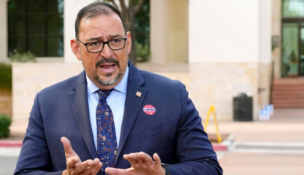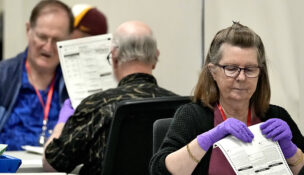Brewer puts a few budget cards on the table
Arizona Capitol Reports Staff//March 6, 2009//[read_meter]
Brewer puts a few budget cards on the table
Arizona Capitol Reports Staff//March 6, 2009//[read_meter]
Gov. Jan Brewer presented her five-point budget plan to a joint session of the Legislature. Almost immediately after becoming governor, Jan Brewer was barraged with questions from the media and...
No tags for this post.

















